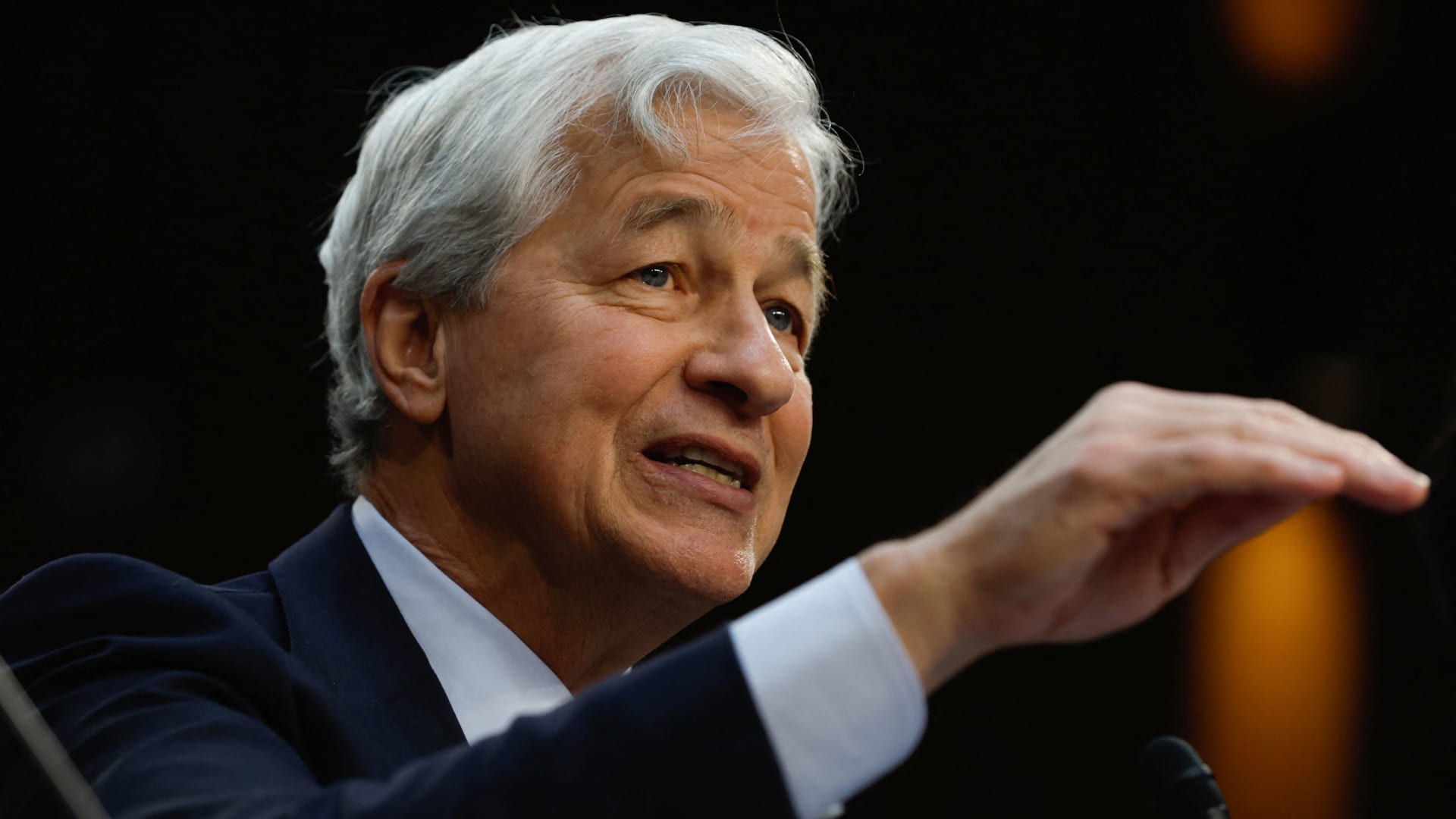JPMorgan Chase CEO Jamie Dimon warned Friday that multiple challenges, primarily inflation and war, threaten an otherwise positive economic backdrop.
“Many economic indicators continue to be favorable,” the head of the largest U.S. bank by assets said in announcing first-quarter earnings results. “However, looking ahead, we remain alert to a number of significant uncertain forces.”
An “unsettling” global landscape, including “terrible wars and violence,” is one such factor introducing uncertainty into both JPMorgan’s business and the broader economy, Dimon said.
Additionally, he noted “persistent inflationary pressures, which may likely continue.”
Dimon also noted the Federal Reserve’s efforts to draw down the assets it is holding on its $7.5 trillion balance sheet.
“We have never truly experienced the full effect of quantitative tightening on this scale,” Dimon said.
The latter comment references the nickname given to a process the Fed is employing to reduce the level of Treasurys and mortgage-backed securities it is holding.
The central bank is allowing up to $95 billion in proceeds from maturing bonds to roll off each month rather than reinvesting them, resulting in a $1.5 trillion contraction in holdings since June 2022. The program is part of the Fed’s efforts to tighten financial conditions in hopes of alleviating inflationary pressures.
Though the Fed is expected to slow down the pace of quantitative tightening in the next few months, the balance sheet will continue to contract.
Taken together, Dimon said the three issues pose substantial unknowns ahead.
“We do not know how these factors will play out, but we must prepare the Firm for a wide range of potential environments to ensure that we can consistently be there for clients,” he said.
Dimon’s comments come amid renewed worries over inflation. Though the pace of price increases has come well off the boil from its June 2022 peak, data so far in 2024 has shown inflation consistently higher than expectations and well above the Fed’s 2% annual goal.
As a result, markets have had to dramatically shift their expectations for interest rate reductions. Whereas markets at the beginning of the year had been looking for up to seven cuts, or 1.75 percentage points, the expectation now is for only one or two that would total at most half a percentage point.
Higher rates are generally considered positive for banks as long as they don’t lead to a recession. JPMorgan on Friday reported an 8% boost in revenue in the first quarter, attributable to stronger interest income and higher loan balances. However, the bank warned net interest income for this year could be slightly below what Wall Street is expecting and shares were off nearly 2% in premarket trading.





